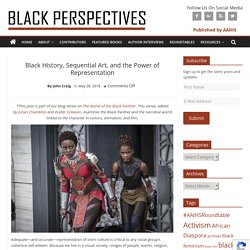

Muhammad Ali: 'Why is everything white?' News BBC News Navigation Sections Previous Next Media player Media playback is unsupported on your device Muhammad Ali: 'Why is everything white?

' Video Muhammad Ali: 'Why is everything white? ' Boxing legend Muhammad Ali, who died in 2016, explained how he used to ask his mother about white representation in an interview with Parkinson in 1971. He said he was a curious child who noted the plethora of white objects and people, including in literature, media and even household products and wondered why black people weren't represented in the same way. As well as a sportsman, Mr Ali was a civil rights campaigner and poet who transcended the bounds of sport, race and nationality. He died in Phoenix, Arizona, aged 74. This is an excerpt from an interview Mr Ali did with Parkinson in 1971. 10 Jun 2020 Go to next video: 'This is not just murder, but a hate crime' More On: Michael Parkinson Video Top Stories More from BBC Reel Must See Most watched Why you can trust BBC News.
Nic Stone:Writing for Change. A Conversation With Black Women on Race. RTE0493Searching. Angie Thomas: The Hate U Give. Jul 2, 2018 5:14 PM.webm. Toni Morrison Talks About Her Motivation For Writing. Jason Reynolds - Serving Young Readers with "Long Way Down" - The Daily Show with Trevor Noah (Video Clip) Meet Marley Dias, The Force Behind #1000BlackGirlBooks. Why You Should Read African-American Literature Year-Round. Black History Month is important for many reasons. It’s important because of how widespread and systematic racism is, even in 2018, and it’s important simply because black history is American history.
A fantastic way to celebrate the month is to read books written by African-American authors, though the novels don’t need to leave your to-be-read (TBR) list when March comes around. Many African-American penned stories have just as much literary merit as their canonical counterparts, but often go overlooked due to the systemic tendency to downplay the academic or artistic value of cultural commodities produced by minority figures. By choosing to read African-American literature year-round, readers are fighting the underrepresentation of black people in literature. In children’s literature, less than 8 percent of books published in 2015 were written by or about African-American people, according to a study by the Cooperative Children’s Book Center. Angie Thomas Sharon Draper Jason Reynolds. Black History, Sequential Art, and the Power of Representation. *This post is part of our blog series on The World of the Black Panther.

This series, edited by Julian Chambliss and Walter Greason, examines the Black Panther and the narrative world linked to the character in comics, animation, and film. Adequate—and accurate—representation of one’s culture is critical to any racial group’s collective self-esteem. Because we live in a visual society, images of people, events, religion, and places are often perceived as truth. These depictions, whether they are accurate or inaccurate, tend to define one’s reality—regardless of statistical truth. For people of African descent, it is essential that we become wise stewards of our own collective representation. Mainstream narratives in the media continue to portray Black people as void of a past—and future—they can call their own. The Black Panther film exemplifies the power of sequential art as a literary and visual medium. Copyright © AAIHS. Jamila Lyiscott: 3 ways to speak English. Chimamanda Ngozi Adichie: The danger of a single story.